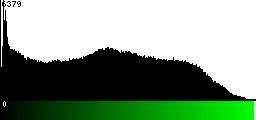
Pullikali artists painted as tigers transform the road into a carnival at Thrissur, Kerala.
Puli Kali also known as Kaduvakali is a colorful recreational folk art from the state of Kerala. It is performed by trained artists to entertain people on the occasion of Onam, an annual harvest festival, celebrated mainly in the Indian state of Kerala. On the fourth day of Onam celebrations (Nalaam Onam), performers painted like tigers and hunters in bright yellow, red, and black dance to the beats of instruments like Udukku and Thakil. Literal meaning of Pulikali is the 'play of the tigers' hence the performance revolve around the theme of tiger hunting.
The origin of Pulikali dates back to over 200 years, when the King Ramavarma (Sakthan Thampuran) is said to have introduced the folk art. Muslim soldiers of the British Army (Nair Brigade) stationed in Thrissur in the army cantonment area (Pattalam Road) used to celebrate with great fervor. Along with the celebrations, they used to perform the art form decked as tigers with peculiar steps resembling the tiger, then known as 'Pulikkettikali' which was immensely enjoyed by the locals. Pulikali in Thrissur is held in memory of this event.



